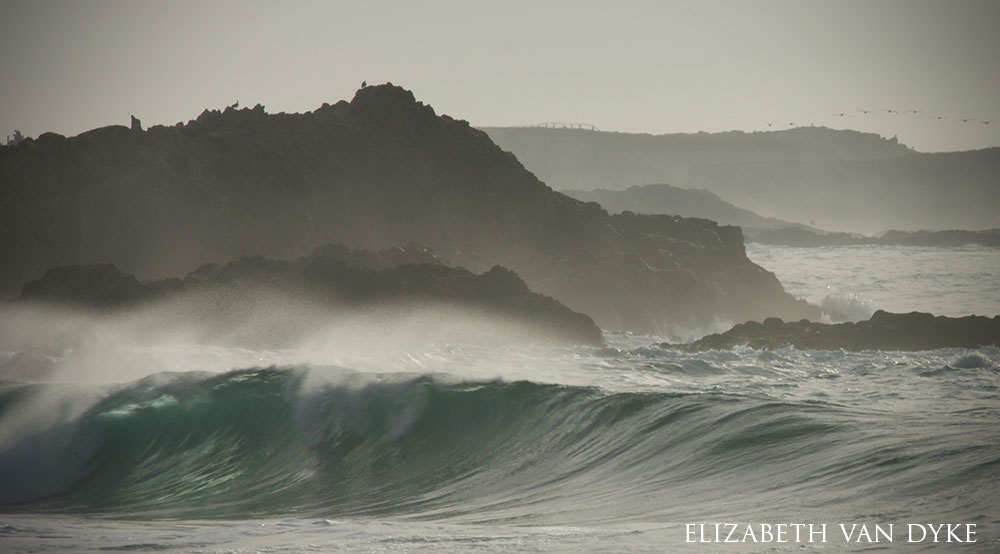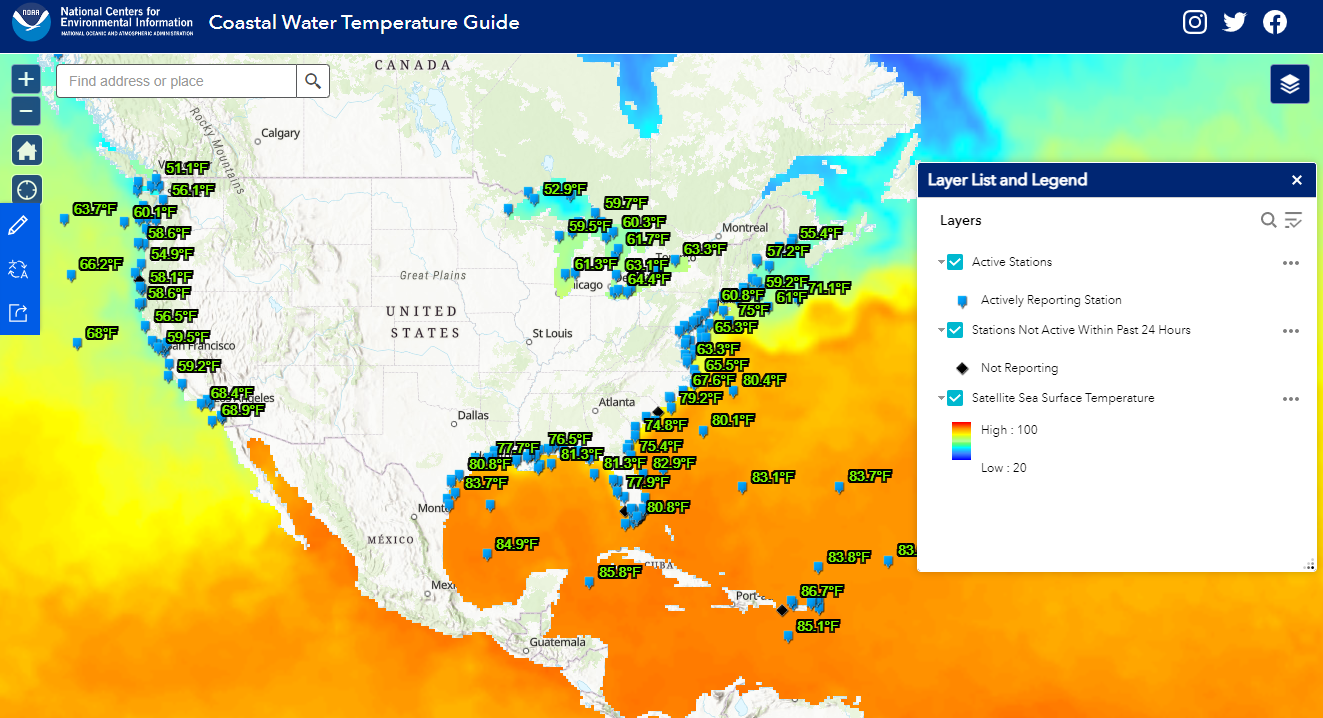Weather and Ocean Conditions

Before heading out for any activities in Monterey Bay National Marine Sanctuary, you should always check the weather conditions, including tides. If weather conditions do not look favorable in the area, or at the destination, consider altering your plans until conditions improve. If in doubt, don't go out! Wind and weather can change throughout the day.
Check out these resources to get the most up-to-date information on tides, weather, and water quality conditions.
Marine Forecast
Visit the National Weather Service to obtain the latest marine weather conditions, forecasts, and possible warnings or advisories.
Water Temperature
The NOAA National Centers for Environmental Information’s Coastal Water Temperature Guide provides recent ocean and Great Lakes temperatures and average water temperatures collected from buoys, tide gauges, and other monitoring stations in the United States and its territories.
Wind, Waves, and Tides
Use NOAA’s tides and currents map tool to access real-time meteorological and oceanographic data and look up information on local tides from NOAA stations.
NOAA National Data Buoys
NOAA's National Data Buoy Center maintains several buoys that collect information such as air and water temperature, wind speed, and atmospheric pressure.
Water Quality Reports
San Mateo County Beaches
San Mateo Beach/Creek Posting Hotline: (650) 599-1266
Santa
Cruz County Beaches
Santa Cruz Water Quality Hotline: (831) 454-4624
Monterey
County Beaches
Monterey Beach Condition Hotline: (831) 755-4599
San Luis Obispo County Beaches
SLO Beach Water Quality Status Hotline: (805) 788-3411
Marin County
Beaches
Environmental Health Services Hotline: (415) 473-2335
Recommended Gear for Marine Activities:
- Personal floatation device
- Sunscreen
- Water
- Satellite phone
- VHF radio
- Emergency position indicating radio beacon (EPIRB)
- Personal locator beacon (PLB)
- Float plan
Emergencies
If you feel you are in a distress situation, do not hesitate to call for help. The U.S. Coast Guard monitors VHF Channel 16 for marine emergencies.
If your previously reported distress situation improves, notify the Coast Guard to reduce false alarms and ensure Coast Guard rescue crews are ready to respond to actual distress situations.




